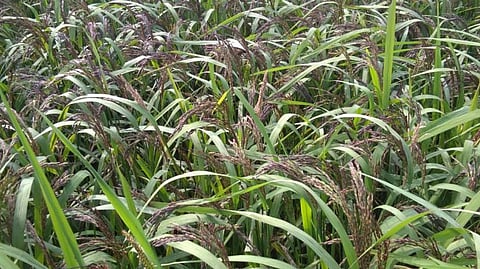

Union Agriculture and Farmers Welfare Minister Shivraj Singh Chouhan announced the development of two genome-edited rice varieties aimed at increasing paddy yields by up to 30%. However, the use of gene editing technology in India is controversial and remains under judicial review.
Experts believe that both varieties, Kamala and Pusa DST Rice 1, have the potential to transform India’s paddy fields by increasing productivity by 30% and 20%, respectively. They are also drought-tolerant, early-ripening, and produce less methane while requiring less nitrogen.
India’s agricultural gene editing technology has been under the Supreme Court's scrutiny for over two decades. When asked by The New Indian Express why genome editing is permitted in the country without passing a biosafety test, Chouhan explained that these varieties are exempt from the biosafety regulations outlined in Rules 7-11 of the 1989 Environment (Protection) Act.
“Current genome technology involves using living organisms from native crop species to enhance productivity and achieve desired results, rather than incorporating alien organisms or bacteria. Therefore, it is treated as free from regulation,” Chouhan stated.
M L Jat, Director General of ICAR, further explained that in SDN 1 and SDN2 types of genome editing, a native gene is mutated in its native location to create an alternative form called an allele with the desired altered expression and function.
“Our varieties have used different technology rather than controversial gene modification technology which is sub-judice,” said Jat.
Meanwhile, these varieties will take more than 4-5 years to reach to farmers.
“We have now developed the breed, and the process of developing foundation seeds and getting certification will take at least 4-5 years,” said Chouhan.
Chouhan claimed that once the varieties reach farmers, the government plans to slowly reduce the area of paddy by 5 million hectares and increase production by 10 million tonnes.
“The reduced paddy areas will be replaced with oilseeds and pulses crops to achieve self-sufficiency in coming years,” said Chouhan.
ICAR has initiated mega genome editing projects for horticulture crops, animals, fish, and microbes.
Other genome editing projects for crops such as bananas, wheat, mustard, tobacco, cotton, and tea are in the advanced stage. Some oilseeds and pulse crops, such as sunflower, soybean, groundnut, chickpea, urad, and masoor, are also in the pipeline.